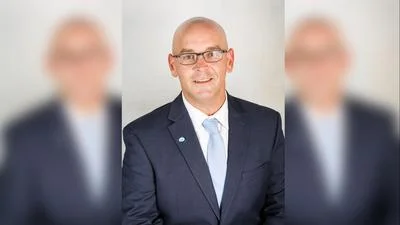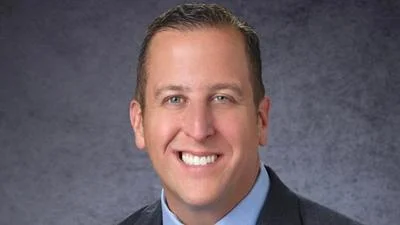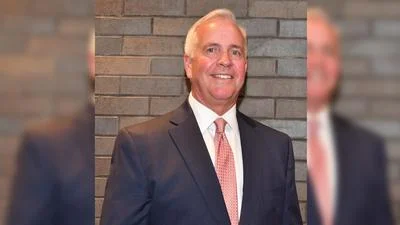State Sen. Michael Hastings (D-Frankfort) | Contributed Photo
State Sen. Michael Hastings (D-Frankfort) | Contributed Photo
Illinois politicians are elected by the people they represent but they play a major role in determining just who those voters are, which distorts the electoral process.
Critics of the current system, who say voting districts are gerrymandered and crafted merely keep Democrats in control of the levers of state government, are calling for reform. They scheduled public hearings between March 17 and May 1 to seek public input.
One concern is that the new political map for legislative and congressional districts will be drawn this summer even though population data won’t be available until this fall, due to problems related to COVID-19.
State Sen. Michael Hastings (D-Frankfort) said it’s important for lawmakers to fulfill their obligations to be fair to all and to craft lines that accurately reflect the diverse populations of regions across Illinois.
“We can’t control the timeline that census data is released but we can make sure we meet our constitutional duty,” he said. “We know the data isn’t perfect.”
The South Cook County Redistricting Committee held a virtual meeting on April 5. Syamala Krishnamsetty, the advocacy director at CHANGE Illinois and the CHANGE Illinois Action Fund, nonpartisan nonprofits that educate, engage and advocate for ethics and efficiency in governments and elections, testified at the hearing.
Krishnamsetty said CHANGE Illinois and a diverse set of partners in more than 30 organizations have long advocated for an independent, transparent redistricting process. They have been disappointed time and time again, she said, but were hopeful for a more open and fair process this time.
“There’s now been two weeks of Senate hearings that have covered almost half of the counties in Illinois. And although much of the state has been covered, participation by the general public at these hearings has not been nearly enough to ensure that maps will accurately reflect the many diverse communities all over Illinois,” Krishnamsetty said. “There were a number of community and good government organizations whose representatives testified and all of us, independently, said the Senate and House committee meetings need more transparency. But many questions remain unanswered.”
She said while more notice of meetings has occurred, there are still serious concerns about the lack of transparency and detail about the remaps, how the public should know which hearings to attend based on vague geographic areas, and how testimony will be reflected in map proposals.
“A fair map doesn’t result from simply holding hearings,” Krishnamsetty said. “There must be more robust outreach to communities across Illinois to give people ample time to plan to attend.”
She said map proposals weeks must be made widely available weeks before votes are taken, and the public must be allowed to offer its views once the maps are reviewed.
“We have been presented with two options by lawmakers: Either give up our democracy to a random draw, giving Republicans a shot to have unilateral control over map-making, or allow for maps to be pushed through by the Democratic majority using ACS data that never was intended to be used for drawing legislative maps,” Krishnamsetty said.
The maps are more than mere lines, numbers and names. They contain power. Former House Speaker Michael Madigan kept tight control on the mapping process and derived power from determining how legislative districts were drawn. His allies, including Commonwealth Edison, assisted him in defecting efforts to make the process more open.
A 2016 Chicago Tribune story explained how Madigan used the maps to maintain control over the Legislature.
Efforts to take back some of that power failed in 2014 and 2016, the nonpartisan Independent Maps coalition gathered 570,000 signatures for a petition to create an 11-member bipartisan commission to redraw legislative boundaries every 10 years after the U.S. census.
Attorney Michael Kasper, who has close ties to Madigan, sued to block the map reforms. Advocates for reform are trying a new approach.
State Sen. John Curran, a Republican who represents the 41st District, said Senate Republicans are backing the people's independent map act Senate Bill 1325, which will put citizens draw district lines. That’s especially needed in Chicago, where wards have been gerrymandered for decades.
Hastings, who grew up in Orland Hills, attended and graduated from West Point before serving in the U.S. Army for a decade, rising to the rank of captain. He served in Iraq, and received the Bronze Star Medal and 1st Infantry Division combat patch.
In addition to his West Point education in business management and civil engineering, Hastings has earned a master of business administration with honors from the University of Illinois at Champaign-Urbana and a Juris Doctor from the John Marshall Law School.
After leaving the service, he joined Johnson & Johnson, where he worked as a salesman in its medical device division. He was elected to the District 230 Board of Education in 2009 and in 2012 was elected to the state Senate to represent the 19th District.
Hastings is in his third term and was named to the Senate leadership team, serving as the majority caucus whip. He practices law and lives in the southwest suburbs with his wife Katie, son Mikey and daughter Maddie.






 Alerts Sign-up
Alerts Sign-up